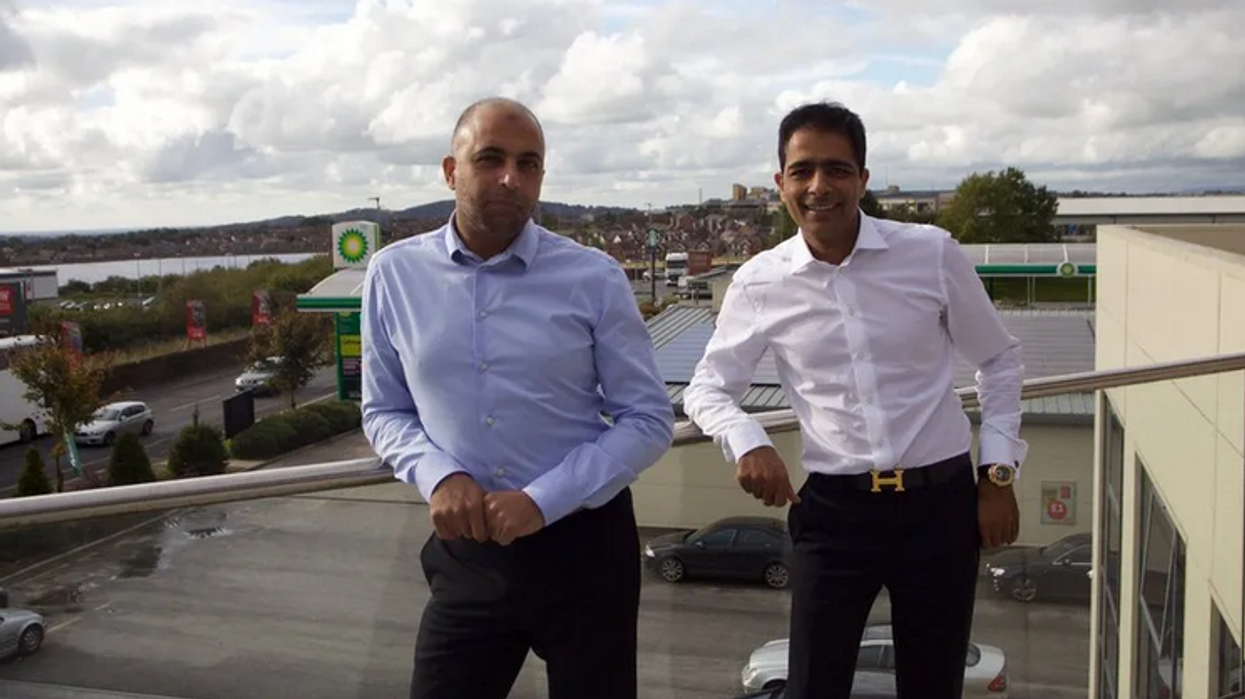MOHSIN ISSA, the billionaire owner of Asda, has revealed plans to delegate the reins of the UK's third-largest supermarket chain.
In an interview with the BBC, Issa disclosed a strategic "reset" for the retailer, anticipating the appointment of a new CEO.
Despite Asda's considerable £5 billion debt, Issa affirmed his commitment to the business and quashed rumours of discord with his brother and business partner, Zuber.
"We talk to each other probably two or three times a day. We've been very, very privileged. We have been on a journey and we have got a long way still to go," he was quoted as saying.
The Issa brothers' journey from humble beginnings to towering wealth has been remarkable, with a net worth exceeding £5bn.
Reflecting on their achievements, Mohsin Issa acknowledged that luck and hard work fuelled their success.
"We have been in the right place at the right time and taken advantage of some of the opportunities," he told the broadcaster.
"We've not done bad, to be honest. It surpassed our dreams and visions."
He added, "I just had that vision of running my own business. I always had that determination of trying to control my own destiny."
Asda recently opened its 1,000th store in Stevenage. The brothers' ascent began with the acquisition of a single petrol station in Bury, Greater Manchester, in 2001. Exploiting opportunities presented by retreating oil companies, they expanded their portfolio, transforming forecourts into lucrative retail hubs.
Their venture, the EG Group, now spans 10 countries, boasting partnerships with renowned brands such as Starbucks and Subway.
Three years ago, the Issas, in collaboration with TDR Capital, acquired Asda from Walmart, undertaking a monumental debt burden. This audacious move earned them both CBE honours.
Mohsin helms Asda's operations while Zuber focuses on the petrol station business.
Despite challenges, including market share loss and debt concerns, Mohsin noted Asda's potential and its robust cash generation. While the retailer navigates transitional phases and invests significantly, Mohsin predicted a future where he can appoint a CEO to steer Asda's course.
Mohsin, 52, said Asda's £4.9bn debt is sustainable as 90 per cent of it is fixed.
Asda produced ample cash, ensuring that even if interest payments doubled, the company could easily cover them, he said.
"It is challenging. If you get up and if you're not challenged then I suppose you shouldn't be doing your job. We're in a transition period where we're evolving, but also we're investing significantly. Market share will fluctuate over a period of time," he was quoted as saying.
"We feel we're doing the long-term investment that will help us regain some of that market."
He designed Asda Express, a convenience store competing with Tesco Express and Sainsbury's Local. Additionally, Asda plans to increase hourly wages for employees, with proposed raises from £11.11 to £12.04 and from £12.28 to £13.21 for those within the M25 region.
The shopworkers' union, Usdaw, is urging its members to vote in favour of accepting this offer during an upcoming vote.
The Issas' philanthropic endeavours, rooted in their hometown of Blackburn, reflect their commitment to the local community.
Mohsin said there are currently no further business deals planned, but he hinted at the possibility of future opportunities, stating, "Never say never."














